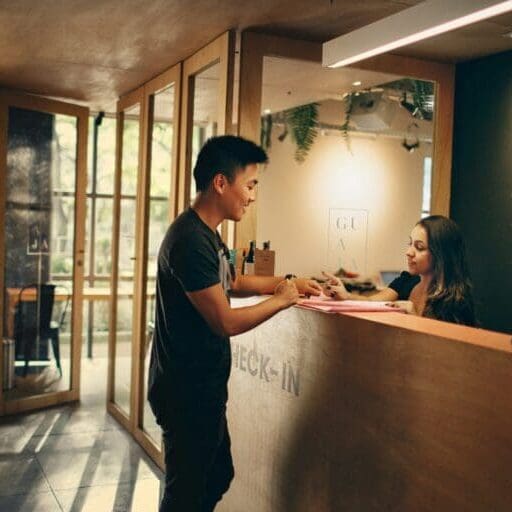
An important part of the user experience in any type of business is the personalisation.Today’s customers not only appreciate content that is directed at them but seek and expect it. That is why both hoteliers and OTAs could benefit from including personalised offers and language to attract a wider audience. Today we will discuss some of the ways they can do just that.
What is personalisation?
Firstly, let’s discuss the meaning of the word ÒpersonalisationÓ. It has often been mistaken for ÒcustomisationÓ but these concepts are, in fact, very different from each other. Customisation is changing the existing product or service to better correspond with the customer’s needs. Personalisation is tailoring our product, service or marketing strategy.
The purpose of personalisation is improving the customer’s experience and answering his needs more effectively and in a shorter time. This way interactions between the company and the buyers are easier and the satisfaction of the latter is increased. It is tailoring our offer to our individual customers.
Hotel’s profile
For hotels, it is important to personalise the service for their guests. However, the OTAs can also personalise the experience of the hoteliers. One way to do it is by improving the hotel’s profiles to match their needs. That means, letting them adjust their own accounts to their liking, adding and deleting pictures and information or including additional benefits for the guests. Online booking platforms are the hotels’ advertising tools as well as one of their sales channels. That’s why it is crucial for the hoteliers to match their profiles to their general strategies.
It not only makes their cooperation with the OTA easier but also enhances the user experience for their guests.
A good example is the booking platform Bidroom.com. It doesn’t charge the hoteliers commission for bookings. Instead, the company asking them to offer a discount to the travellers. On the hotel’s profile, the administrator can actually choose the discount percentage and change it any time, even after it has been set. The hoteliers can also add and delete pictures, write their own descriptions and change the number of extra benefits, making their profiles more personal and adjusted to their business model.
Guest experience
What can the hoteliers do to implement personalisation in their customer service when most of them do not have client’s profiles on their websites? Personalise the guest experience of course. Some properties have mastered the art of personalisation by adding little touches to each reservation. That can be as simple as putting a box of chocolates on the bed with a nice welcome card with the guest’s name on it. Even such a little touch can make an enormous difference in the perception of the hotel among its guests.
Another great way to personalise their stay is asking them a few basic questions before their arrival and adjusting their rooms to their preferences. What can that mean? Letting them choose the colour of their sheets or the temperature in the room are just a few of many options.
Guests also appreciate it when hotels do not impose deadlines on them. That means longer breakfast times or maybe a possibility to check-in and check-out at the time that suits them best.
It does not take much for the travellers to feel pampered and distinguished from the other guests.
Marketing
Personalisation is often the go-to word for the marketers. Most marketing campaigns do not work or have a very poor performance if they are not addressed to the right target group. Customers are bombarded with campaigns, whether they are using a metasearch engine, social media or apps. They see hundreds of promotional posts each day, making them both easily irritable and very picky.
All that makes it very important to either craft your campaigns fit several types of users or only target the group you think may find your ad interesting. Even if someone likes your profile, it does not mean that the same person will like everything you post. Make sure to add more than one criteria to the list when choosing the recipients of your campaign. Additionally, include various types of content on your Facebook, Instagram, Twitter or blog. This way, you ensure that even if not every post will be liked by all your fans, they will essentially find something for themselves on your profile. Not only will they not be annoyed by a company that doesn’t answer their own needs, but they will also be more likely to choose your hotel, believing that you understand them and their expectations.
The importance of personalisation
Most marketers are certain that personalisation is the future of both sales and marketing. The customers know that they have a choice between various companies, and do not have to settle for something that does not suit them. They choose enterprises that know their needs. It has been statistically proven, that they get irritated with content and service which do not fit their expectations. On the other hand, they are more likely to cooperate with a company that seems to know them and adjust to them.
Knowing the previous choices of our customers and their ongoing behaviour is the major part of the XXI century marketing. Personalisation will continue being the key to successfully sell our products and should not be overlooked.






























